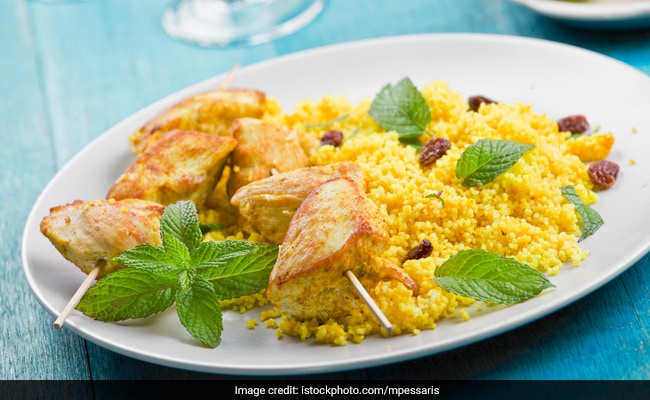If you've been on a diet, you must be confused about the numerous diets that people have been talking about nowadays. Low-carb diets are a part of a number of health fads. Carbohydrates are important macronutrients in our diets, which supply the body with energy. Carbs are broken down into sugar glucose, which is then absorbed in the bloodstream and is used for various body functions. But there are different types of carbohydrates and understanding the difference between these carbs is crucial to following a healthy diet. Processed carbs are low in fibre and contain empty calories, which may increase your risks of developing a number of diseases including diabetes, obesity, hypertension and even mood disorders. However, healthier carbs are those that are high in fibre and nutrition, and which fuel the body and protect it from various ailments.
Low-Carbohydrate Diet
Low-carbohydrate diets may be beneficial for the body, given that they are followed under strict supervision of an expert and include a healthy balance of all the macro and micro nutrients that are required by the body. Fad diets that promote extreme restrictions of certain food groups and nutrients are not recommended. However, if you have been advised to lose weight quickly to better manage certain specific ailments, then you may choose to switch to a low-carb diet. Even in low-carbohydrate diets you must include some portions of healthy whole grains.
Also Read: Fruits For Weight Loss: Top 6 Low-Carb Fruits To Include In Your Diet
Here are five of the best grains to include in your low-carb diet:
1. Oats
Oats are one of the best diet-friendly grains out there. Even generally, incorporating oatmeal in your diet can help you better manage weight and stave off hunger pangs. They are great for breakfast, lunch and dinner. A 100 gm portion of oatmeal contains 12 grams of carbs (as per data from the United Stated Department of Agriculture). Additionally, oats are rich in protein, which is an added advantage for those on a low-carb diet.
Also Read: 8 Quick Oat Recipes: From Oats Uttapam to Oats Kheer and More!
 Low-Carb Diet: Oats are rich in dietary fibre and protein
Low-Carb Diet: Oats are rich in dietary fibre and protein2. Quinoa
This grain has seen a rise in popularity over the last few years and for all the good reasons. Quinoa is one of many gluten-free grains that is rich in fibre and especially high in proteins, which is ideal for the so-called health nuts. A 100 gram of cooked quinoa contains 21 grams of carbs and 2.8 grams of dietary fibre, as well as 14 grams of protein (as per USDA data). It also contains good amounts of calcium, iron, magnesium, phosphorus and potassium.
Also Read: Quinoa Nutrition: Here's Why You Should Include This Pseudo-Cereal In Your Daily Diet
 Low-Carb Diet: Quinoa is one of many gluten-free grains that is rich in fibre and especially high in proteins
Low-Carb Diet: Quinoa is one of many gluten-free grains that is rich in fibre and especially high in proteins3. Wild Rice
Also known as Canada rice and Indian rice, wild rice are not very popular, but are nonetheless incredibly nutritious and as an added bonus, are low in carbs as well. Cooked wild rice contains just 21.34 grams of carbs per 100 grams, as well as almost 4 grams of protein in the same portion (as per USDA data). They are also low in fats and rich in the amino acid lysine.
Also Read: Carbs Are Not Bad: 5 Grains To Enjoy In Your Everyday Rotis
 Low-Carb Diet: Wild rice are extremely nutritious
Low-Carb Diet: Wild rice are extremely nutritious4. Couscous
Another popular grain among the health freaks, couscous is often added to salads. It is a staple in North African cuisines of Tunisia, Libya, Algeria and Morocco. As per USDA data, cooked wheat couscous contains 36 grams of carbohydrates per cup (173 grams) and a whopping 6 grams of protein in the same portion size.
Also Read: 5 Best Couscous Recipes | Easy Couscous Recipes
 Low-Carb Diet: Couscous is a staple in North African cuisines of Tunisia, Libya, Algeria and Morocco
Low-Carb Diet: Couscous is a staple in North African cuisines of Tunisia, Libya, Algeria and Morocco5. Bulgur
Popularly known as daliya in Hindi and burghul in Arabic, this whole grain is great for those on a low-carb diet. They are made from cracked parboiled groats of several wheat species, most often from durum wheat. Cooked bulgur contains just 18.58 grams of carbs, 4.5 grams of dietary fibre and 3.08 grams of protein (as per USDA data). It can used to make porridges, breads and can even be added to grain salads.
 Low-Carb Diet: Bulgur is also known as daliya in Hindi
Low-Carb Diet: Bulgur is also known as daliya in HindiAs a general rule of thumb, people on a low-carb diet must go for whole grain options and completely ditch refined or processed grains. Consult your nutritionist to help you decide which food grain works best for you, according to your daily carbohydrate limits.
(This content including advice provides generic information only. It is in no way a substitute for qualified medical opinion. Always consult a specialist or your own doctor for more information. NDTV does not claim responsibility for this information.)







